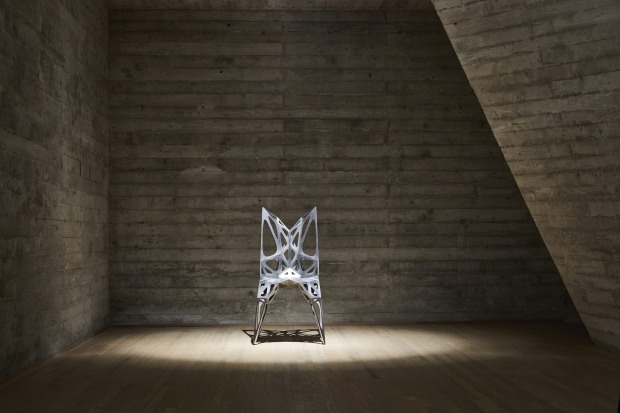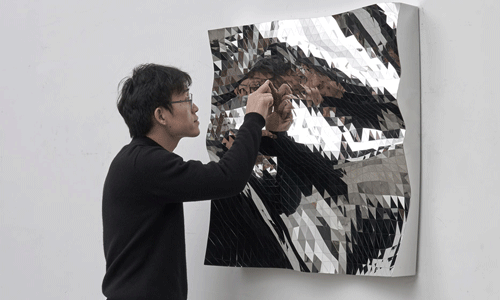Design Miami/Basel furniture fair pitches technology against ecology
Source:afr
Shanghai-based Zhoujie Zhang's gleaming steel Endless Form chairs stood their ground like stylish cyborgs.
Ecology and technology shared the stage at the Design Miami/Basel show, which wrapped up on June 17.
On the one hand, South African designer Porky Hefer's seating pods in the shape of endangered animals swung, slouched and otherwise frolicked in handcrafted eco-textiles on a stand sponsored by the Leonardo di Caprio Foundation. On the other hand, Shanghai-based Zhoujie Zhang's gleaming steel Endless Form chairs stood their ground like stylish cyborgs.
The face-off said a lot about the state of design today.
Hefer, 55, uses design as activism, a catalyst to promote change. His flamboyantly goofy fauna furniture speaks to human frailty, placing us in the maw of cartoonish beasts offering shelter as they cough us up. (It's hard to feel totally comfortable in a swing seat shaped like a piranha.) At the same time, by inviting us to cavort on his Endangered sofas in the forms of an orangutan, a polar bear, a blue whale, a shark and a sloth, the designer highlights our insouciance in an effort to ignite our empathy.
 Zhoujie Zhang's Endless Form chairs are exercises in infinity
Zhoujie Zhang's Endless Form chairs are exercises in infinity
Zhoujie Zhang's Endless Form chairs are exercises in infinity. Supplied
Hefer's background is in advertising: he communicates quickly, hammering his message home with humour and eliciting a childlike sense of awe in even the most sophisticated of collectors. (Of which he has many, including the National Gallery of Victoria.)
His Endangered pieces are variously crocheted, felted, stitched and embroidered in sustainable materials by local Cape Town craftswomen from recycled sea debris, discarded textiles and hand-carded wool. Exotic one-offs, they are priced between $75,000 and $125,000 each.
"It's the future of the new generation that I am concerned about, and the state of the world they inherit,' says the designer. "Looking after our animals and Earth is one thing, but also the preservation of human skills, crafts and traditions. I think it's important to show what beauty humans are capable of with their hands rather than the destructive mass production that technology is driving the modern consumerist society towards."
Zhoujie Zhang would beg to differ. Armed with a degree in product design from the China Academy of Art in Hangzhou and a Master of Arts in industrial design from Central Saint Martins in London, the 34-year-old uses computer software to develop domestic hardware. As the name suggests, his Endless Form chairs are exercises in infinity, constantly evolving – at least until the program is superseded.
"I believe that objects in the digital world will grow as nature does, in an organic way," says Zhang. "We just need to discover why and how that happens."
To produce his chairs, Zhang inputs basic mathematical instructions into a computer and allows the program to generate their forms. He envisions a time in the not too distant future when he can disappear completely from the process, delegating his creative role to artificial intelligence. At this stage, the chairs still rely on human hands for assembly, but that may soon change.
"I was quite interested in the ancient Chinese philosophy of Taoism," he explains. "Taoism has a view of how nature comes about: that things are constantly changing, and everything is unpredictable and isn't fixed. [Endless Form] was a way of creating in a similar way to nature, creating something that is constantly changing.
"I didn't want to design something, I wanted to find something."
(Source:afr.com)


 沪公网安备31010402003309号
沪公网安备31010402003309号



